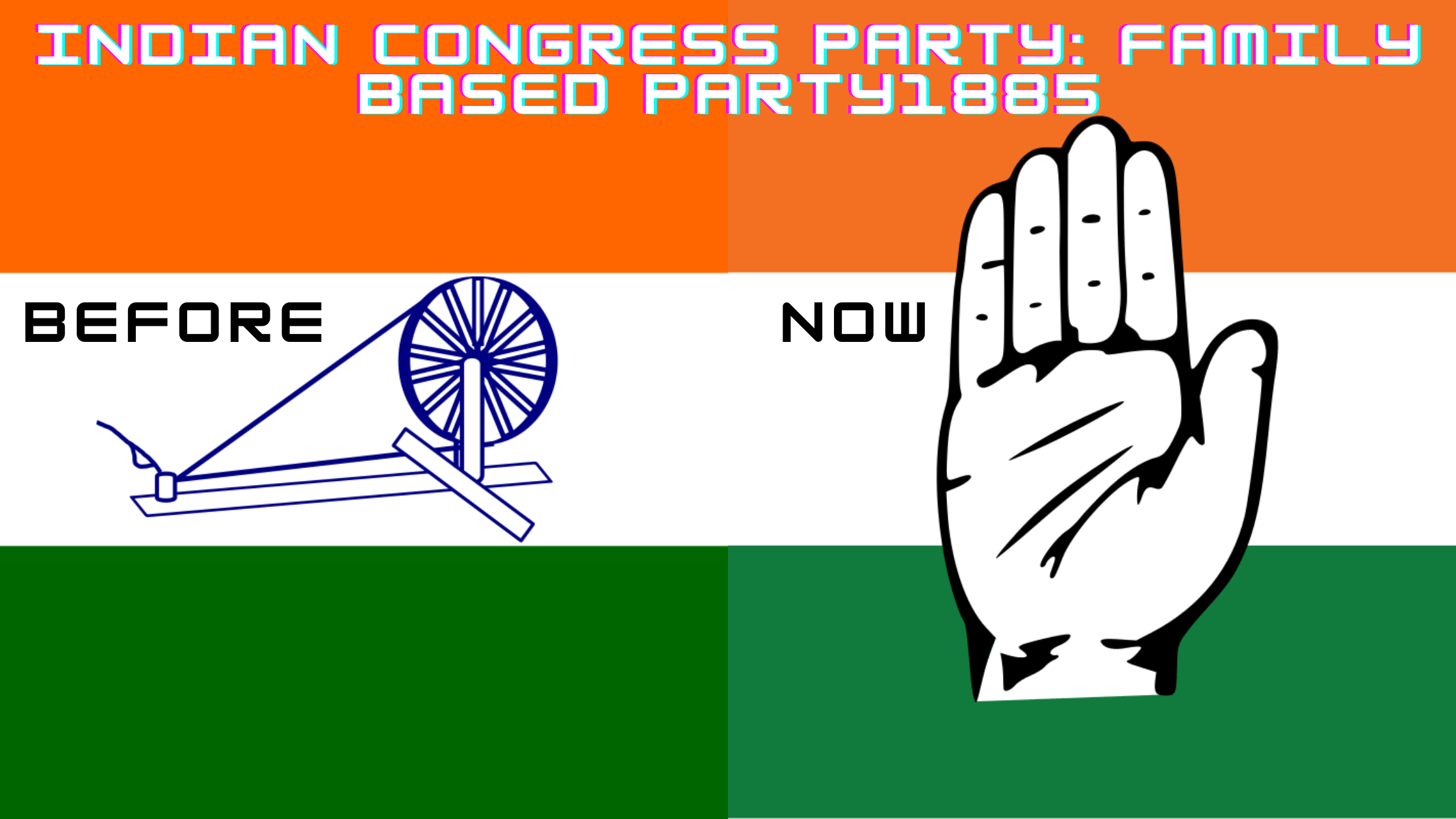The Indian Congress Party, simply called Congress, holds a central place in the country’s political landscape. Established in 1885, it played a key role in India’s struggle for independence and has since become central in shaping the country’s political future.
The Indian Congress Party: Family Based Party1885

Historical Foundations: Indian Congress Party’s foundations go back to the British Empire. Initially, it served as a forum for Indian leaders to voice their concerns and demand constitutional reform. However, over time, the party evolved into the major political force for independence. Leaders like Mahatma Gandhi and Jawaharlal Nehru were among the key figures within the party who contributed to India achieving independence in 1947.
Post-independence period: After independence, the Indian Congress Party advanced in Indian politics. Jawaharlal Nehru became the first Prime Minister, who laid the foundation of a religious and democratic nation. The early years of the party focused on economic planning, social reform and the establishment of democratic institutions. Nehru’s vision and leadership propelled the party towards prosperity.
Dynastic Politics: A distinctive feature of the Indian Congress Party is the prominence of the Nehru-Gandhi family. Indira Gandhi, Nehru’s daughter, and later, her and Feroze Gandhy (he spelled his surname as ‘Gandhi’ until the 1930s and changed it to ‘Gandhi’ when he joined the independence movement because of his admiration for Mahatma Gandhi). ) descendants, such as Rajiv Gandhi, Sonia Gandhi and Rahul Gandhi, have played important roles in the party’s leadership. Critics argue that this dynastic tendency has concentrated power within the family, sometimes overshadowing other potential party leaders. Supporters, however, believe that the long-term family ties to this dynastic phase bring stability and creativity to the party.
Policy Position: Throughout its history, the Indian Congress Party has adopted a centre-left ideology, espousing social justice, interfaith equality, and economic development. The party approved socialist policies after independence. Over time, the Congress has supported economic empowerment, supporting economic reforms in the 1990s, as well as a focus on welfare measures.
Challenges and Comforts: The Indian Congress Party has faced many challenges over the years, such as electoral losses, internal disagreements, and changing political dynamics. With the rising expectations of regional parties and the emergence of the Bharatiya Janata Party (BJP), there has been a change in the political landscape. Despite these challenges, the Congress has shown resilience, winning state elections and maintaining its presence in national politics.
Sharp criticism and renewal: The Indian Congress Party has faced many challenges over the decades, such as electoral losses, internal opposition, and policy positioning. Allegations of corruption, leadership vacuum, and criticism of policy laxity have led to a decline in its popularity over several periods. However, the party has attempted to revitalize itself through internal reform and reflection and to connect with a younger, more diverse population.
Conclusion: The journey of the Indian Congress Party is linked to the modern history of India, from the fight against colonial rule to its role in shaping the country’s post-independence identity. As India continues to grow, the Congress Party faces the challenge of reinventing itself, addressing the concerns of a dynamic electorate, and dealing with the complexities of the multi-party system. Its ability to adapt to the changing political landscape while remaining true to its core values will determine its future role in Indian politics.
Read About Truth About Mahatma Gandhi Click Here
Read About Difference between The Swastika and The Hakenkreuz Click Here
